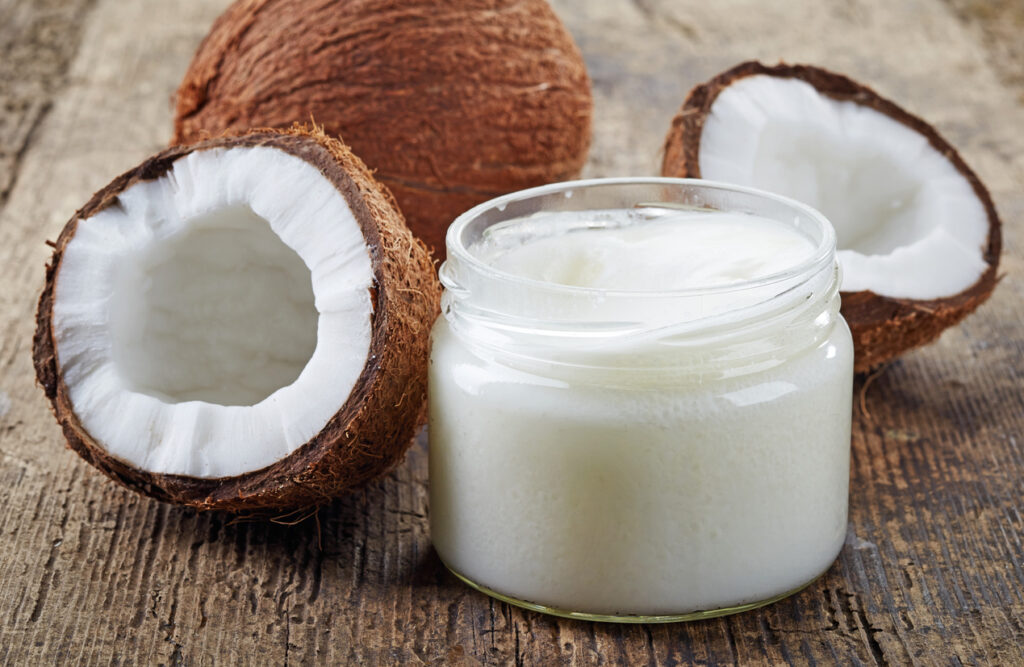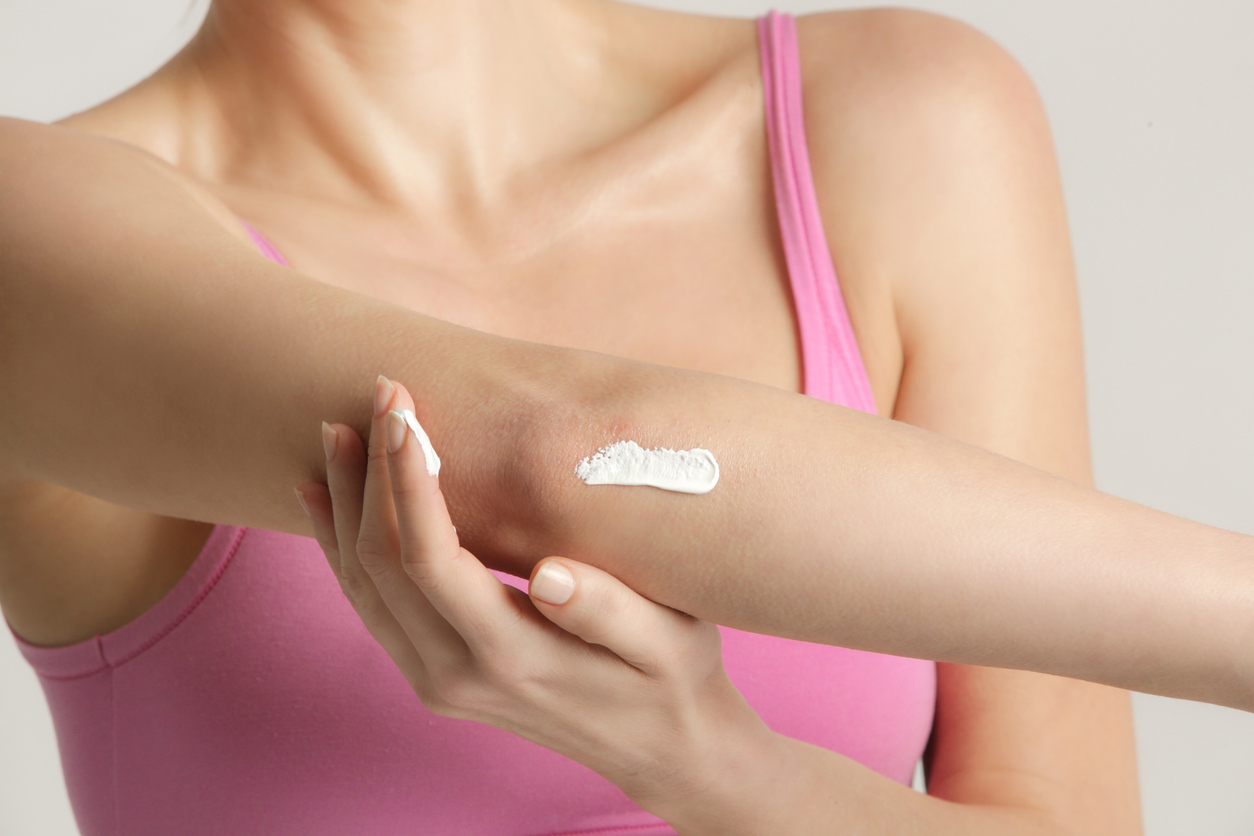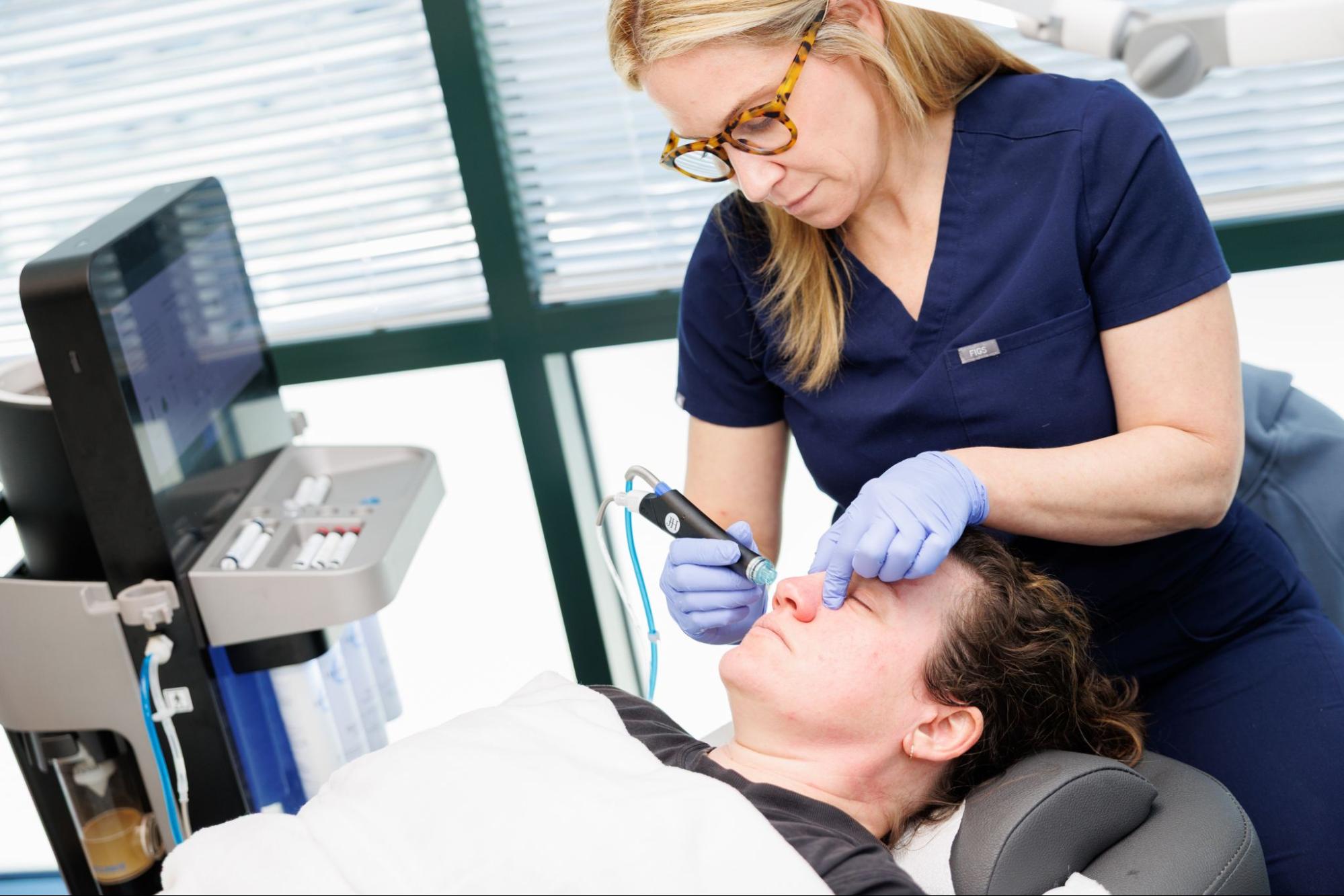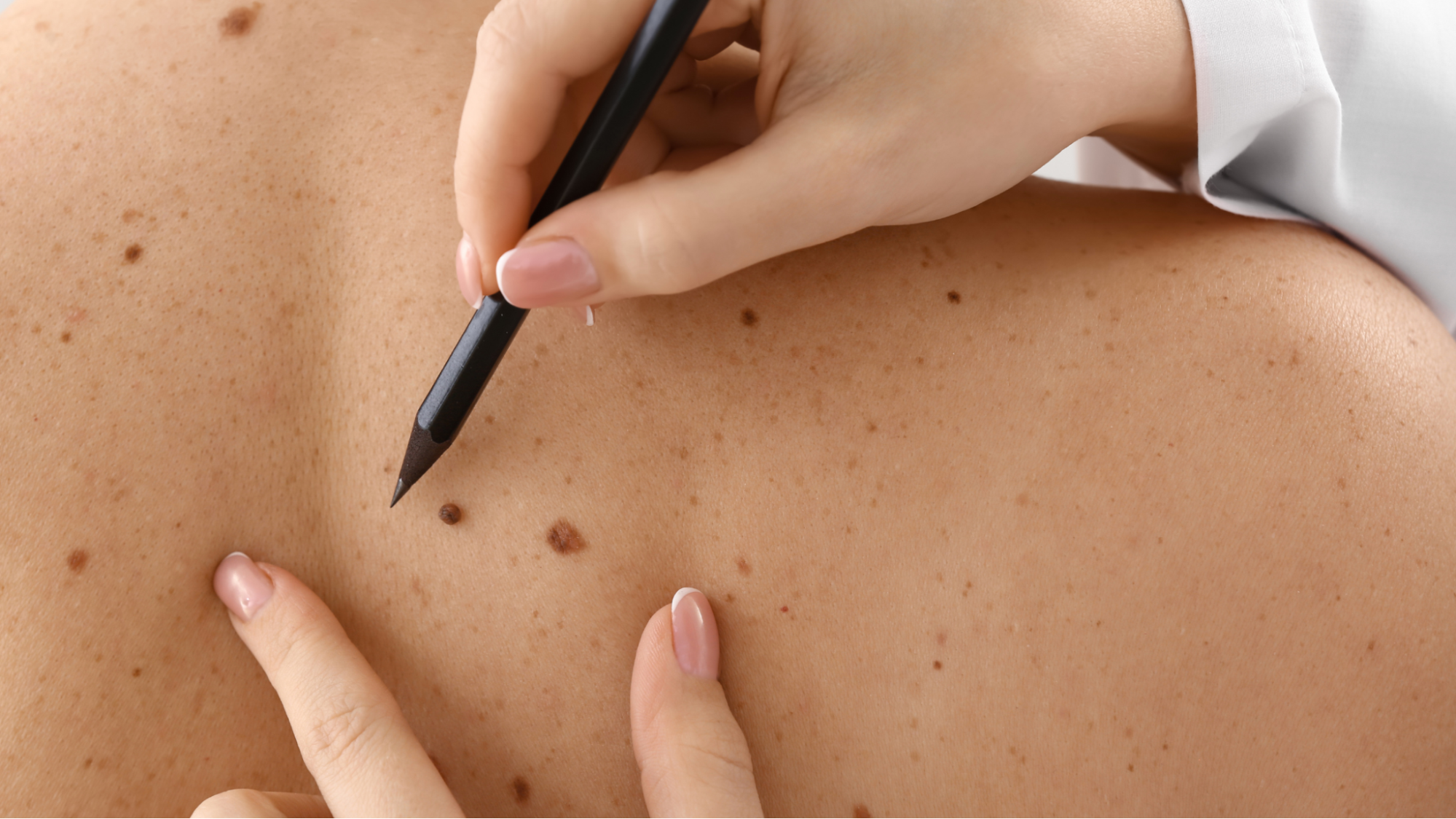One of the most rewarding parts of my job is helping itchy patients stop itching. While many conditions cause itch, eczema is the most common that I see day to day in the clinic. An astonishing 31.6 million or 10.1% of Americans suffer from a form of eczema, and it does not discriminate based on age or ethnicity.
For years, our treatments have relied on topical and systemic steroids, both of which present concerning side effects after long term use. Finally, we have a much smarter eczema treatment toolbox thanks to years of research and new drug development. We also understand the importance of a healthy skin barrier, and how simple daily inexpensive skin care can reduce eczema flare ups. Read on to learn about some of the ways we are using the latest in eczema treatments to bring relief to patients at Georgia Skin Specialists.

1. Start sealing the “Leaky Skin” Barrier. We hear about “leaky gut,” but less often leaky skin. When the skin dries out, the cells separate and release more water from within (transepidermal water loss) and let more external irritants in. With these outside irritants (think pollution, bacteria, fragrance, product preservatives, fabrics, the list goes on) now inside the skin, the immune system goes nuts and launches an inflammatory attack that itches, burns, stings, and makes life pretty miserable. Step 1 in treating eczema is repairing the barrier and sealing those skin cells back together. Simple tricks like oatmeal baths, sunflower oil, coconut oil, and a good ol’ jar of vaseline are inexpensive skin care practices that pay huge dividends in eczema control and prevention.
2. Balance the Immune Response. Eczema is associated with an overactive part of the immune system that constantly sets off allergy-like responses. There are several effective and safe systemic medications (yes, they are injectable and we know that’s not for everyone) that reduce the excessive shift into allergy mode. They don’t suppress the immune system as much as they bring it back into balance. There are several options (one approved for those as young as age 6 months!) available and more are on the horizon.
3. Better Topical Agents. The age of slathering steroid creams on day and night is coming to a welcomed end as smarter and safer anti-eczema topicals become available. I see so much steroid atrophy where the long term use of steroid creams thin and discolor the skin, as well as stretch marks, steroid-induced acne, and hypopigmentation of the skin, which is why I restrict topical steroid application to 2 weeks in most cases. Steroids play an important role; the analogy I use is that if eczema is the fire, steroids are the fire hydrant and newer non-steroidal options are the garden hose. Hit it hard and fast, then switch to a safer and more sustainable option.
4. Hit the road, JAK! A newer class of medications to the treatment of eczema, the JAK inhibitors are very effective in both pill and topical forms. The systemic forms do require some baseline lab monitoring for safety, but I would put my itchy child or friend on one of these over constant prednisone tapers any day.
It’s an exciting era in eczema treatment with more advancements to come. At Georgia Skin Specialists, we stay on top of the latest research and developments to bring our patients relief effectively, safely, and quickly.







